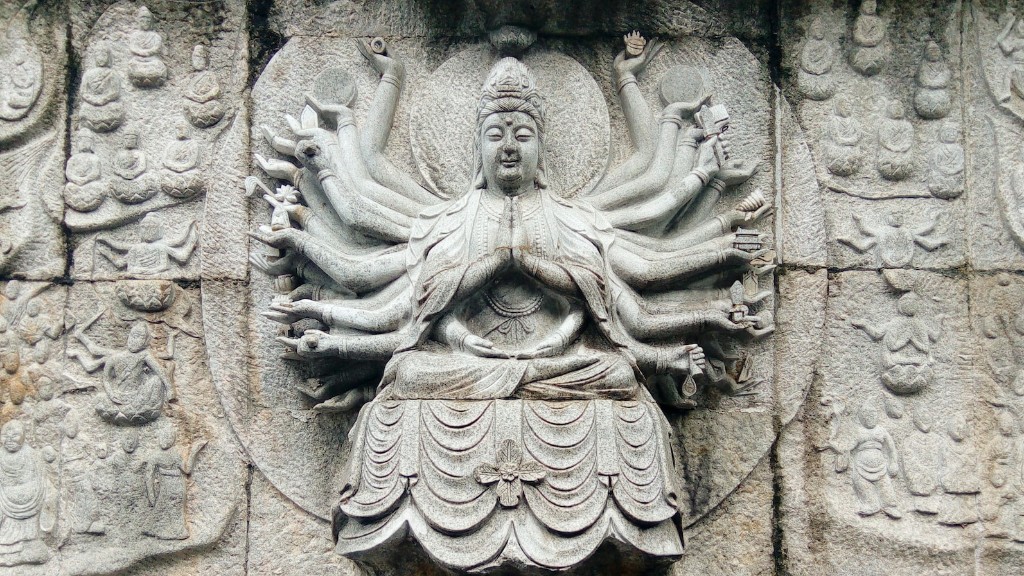Introduction
Judaism is one of the oldest religions in the world and has a major influence in many societies around the world. It is a monotheistic faith, meaning it’s followers believe in only one god, and is traditionally associated with the Jewish people. While there is some debate as to who specifically founded the religion, most scholars agree that the first members of the Jewish faith can be traced back to sometime during the early Common Era. With that said, there has been considerable disagreement as to who, specifically, can be credited with establishing the core tenets of Judaism.
The Accepted Narrative
The most commonly accepted narrative regarding the origins of Judaism is that it was founded by Moses. According to this narrative, Moses is said to have spoken directly with God while on Mount Sinai, and was given a set of laws to bring down to the people of Israel. These laws became known as the Torah, and are still recognized as the main source of Jewish law and theology to this day. In addition to founding this central part of the religion, Moses is also said to have performed various miracles, brought the Jews out of captivity in Egypt, and helped establish the core beliefs and practices of Judaism.
The Debate
In recent years, scholars have begun to question this traditional narrative. It is widely accepted that the Jews were very likely practicing a religion prior to the arrival of Moses, which could help explain why there are records of Jewish people engaged in religious rituals and activities in the Middle East prior to his arrival. Several scholars also point out that the laws contained in the Torah, while attributed to Moses, are likely to have been written by later writers. This could suggest that Moses was a religious leader who updated and strengthened the existing faith, rather than the sole founder of a new religion.
Scholarly Views
Scholars have widely debated who the founder of Judaism was, and there is no widely accepted consensus. A popular view is that the religion evolved gradually over time, and was the result of the collective efforts of many different individuals over a long period of time. Others have suggested that the religion was formed as a distinct faith somewhere in between the time of Moses and the Babylonian exile, which occurred sometime around 586 BCE. As such, many theories exist as to who the founder of Judaism may have been, and the actual answer may never be known.
Recent Developments
In the last hundred years, there has been an increased effort by scholars to trace the origins of Judaism in an effort to better understand the religion. With the advent of new technologies and the increased availability of ancient texts, researchers are slowly piecing together the history of Judaism and its founders. While this research is still in its early stages, it is hoped that one day there may be a more definitive answer to the question of who founded Judaism.
Conclusion
The question of who the founder of Judaism was is still a source of much debate amongst scholars. While the most widely accepted answer is that Moses was the founder, there is still no consensus on this matter. As more research is conducted and more ancient texts are discovered, scholars may eventually be able to answer this question definitively. Until this time, however, the debate is likely to continue.
Religious Texts
Religious texts are one of the primary ways that the beliefs and doctrines of a particular faith are transmitted from one generation to the next. In the case of Judaism, the most important religious text is known as the Torah. The Torah is believed to be the result of Moses receiving the teachings of God while on Mount Sinai, and is widely regarded as the foundational religious text of the Jewish faith. There are numerous other texts in the Judeo-Christian tradition, such as the Talmud and Midrash, which expand on the teachings contained in the Torah. In recent years, a small number of religious texts written by early Jews have been discovered, which can help scholars better understand the origin of Judaism and its central tenets.
Traditions and Rituals
Judaism is a religion that is based heavily around traditions and rituals. These rituals and traditions, known as mitzvahs, are meant to remind the Jewish people of the covenant that God made with them on Mount Sinai. They range from the ritualistic, such as the blowing of the Shofar on the High Holidays, to the symbolic, such as the wearing of a yarmulke at prayer. Additionally, there are certain dietary laws known as kashrut that are observed by Jews as a sign of their commitment to the faith. Taken together, all of these rituals and traditions help to define the religious identity of the Jews and create a unique set of cultural practices within the religion.
History of Judaism
The history of Judaism is a long and complex one, with the earliest records of the faith being traced back to around 2000 BCE in the Middle East. During this time, the Jews were believed to have practiced a polytheistic religion that incorporated elements of Canaanite and Mesopotamian faith practices. It was not until around the year 1280 BCE, when a conquest of Canaan is said to have taken place, that the Jewish faith began to take shape. Shortly thereafter, members of the Jewish faith are believed to have suffered captivity at the hands of the Egyptians, at which time the figure of Moses emerged and began to spread the teachings of the Torah. This event would come to be seen as the birth of the flourishing religious movement that we now know as Judaism.
Judaism In The Modern Day
Today, Judaism is a worldwide religion that is practiced by millions of people around the globe. This includes not just those who identify as Jewish, but also many non-Jewish individuals who have become intrigued by the religion’s ethical and moral teachings. In addition to providing spiritual guidance and a set of guiding principles, Judaism also places a strong emphasis on community service, justice, and living in harmony with others. As such, it provides a powerful source of guidance for individuals seeking to lead a meaningful and purposeful life.




